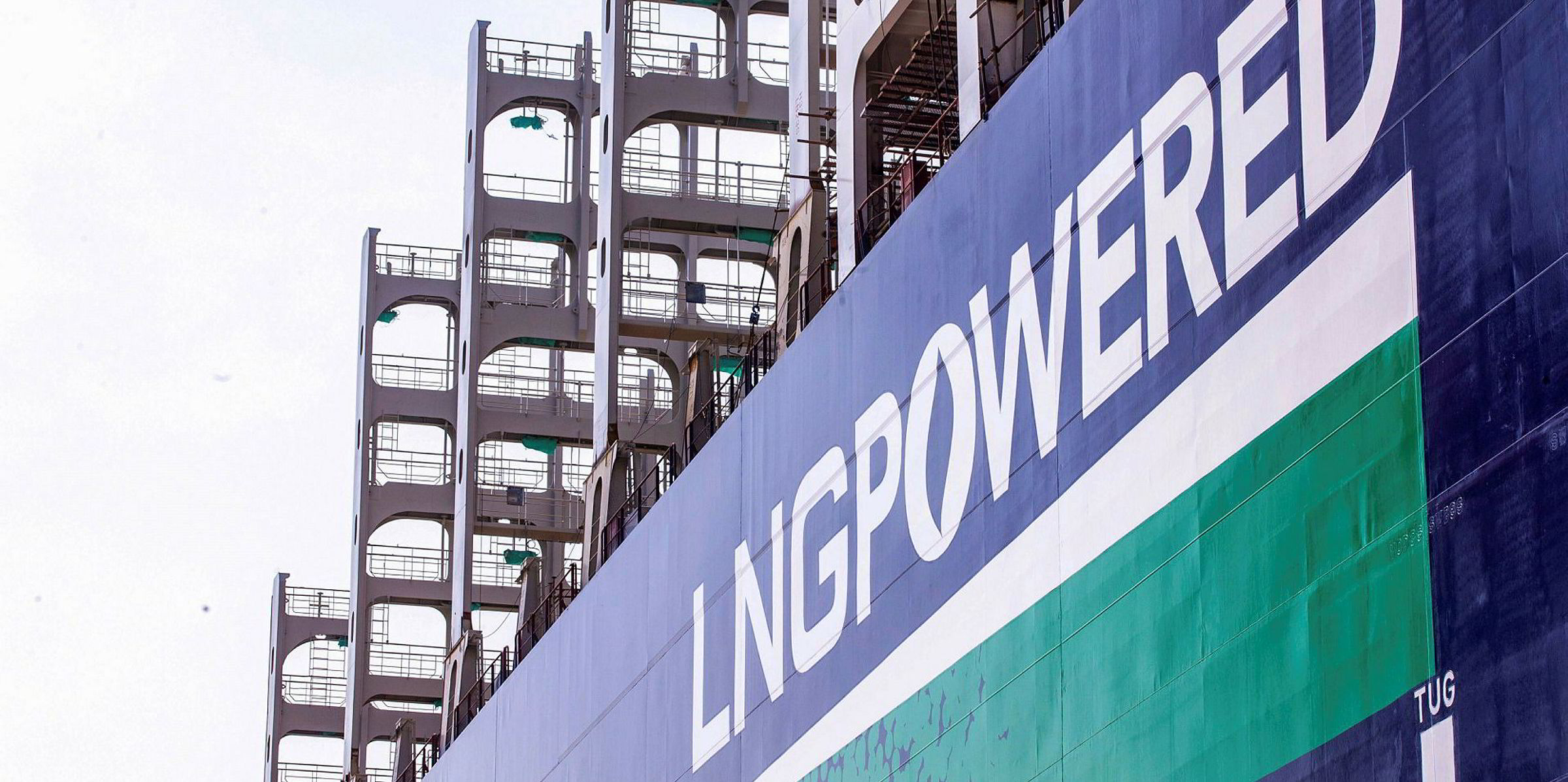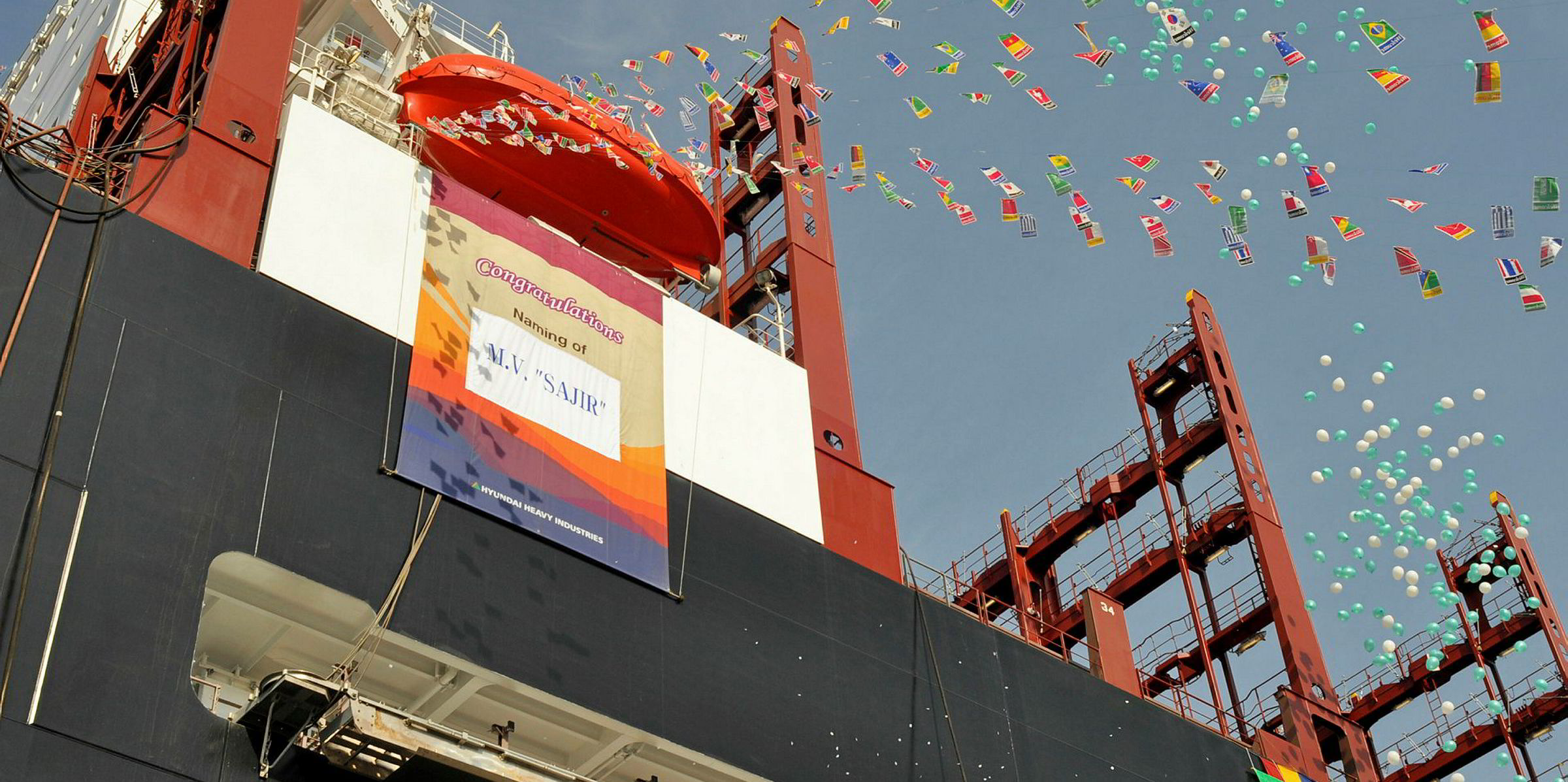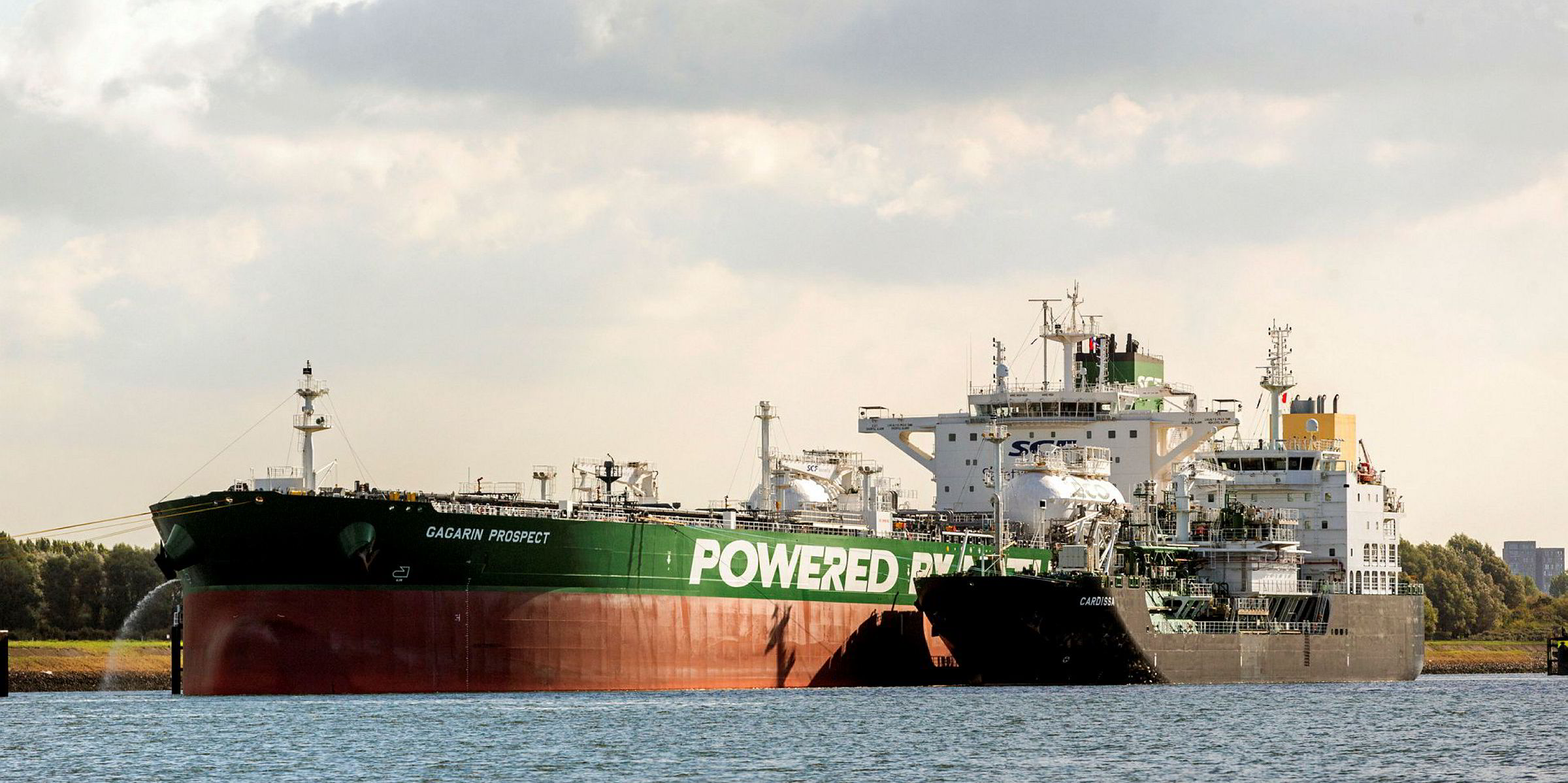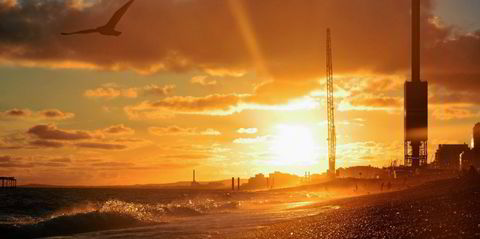A new company focusing on LNG-fuelled containerships has made its first move by signing letters of intent (LOIs) with shipyards in South Korea and China for a raft of newbuildings.
Sources told TradeWinds that Clean Carriers has signed LOIs for boxships of about 10,000 teu, 12,000 teu and 15,000 teu.
They said the technical design work had been done with yards and that vessels would be bespoke and service-ready for areas in which liner companies wanted to charter them.
In a further twist, Clean Carriers has also put in place provisional agreements for the supply of LNG fuel, meaning it could offer liner operators ready-made bunkering solutions for the vessels.
Shipbuilding contract talks are ongoing but could be firmed up in the next couple of months. But the spread of the coronavirus could slow their progress.
The LOIs are understood to be connected to a venture being pursued by capital markets company BTIG, aided by shipbroker Affinity (Shipping).
TradeWinds first reported on the venture in November, when BTIG managing director Ole Slorer told a London conference his company was in the “very advanced stages” of creating a leasing company for containerships that will burn LNG.
Slorer said $12bn to $14bn of capital had been raised for the next generation of vessels and indicated the LNG consumption on this fleet would be equivalent to that consumed in the UK.
'Safe haven'
Affinity managing partner Richard Fulford-Smith confirmed the existence of Clean Carriers and the LOIs.
He said the company is a shipowning entity designed to create a "safe haven" for a group of investors that are outside traditional financing sources and looking at this as part of an energy supply business.
Fulford-Smith said Clean Carriers is at an advanced stage of discussions with shipyards but acknowledged that many liner companies are currently focused on issues related to the coronavirus.
Affinity, and Fulford-Smith in particular, have been promoting LNG-fuelling for large vessels.
The broker cites Idan Ofer's Eastern Pacific Shipping, which has been pioneering in building LNG-fuelled containerships, as one of its key clients.
Fulford-Smith stressed Affinity would continue to support Eastern Pacific, adding that Clean Carriers' investors have a completely different set of requirements and would not be in competition with Ofer's company.
He said Clean Carriers is "offering liner companies that want to listen an alternative".
Fulford-Smith has stepped up his comments to LNG fuelling in the past few weeks.
Speaking to TradeWinds at a Marine Money event in London, where he was moderating a panel, he said: “We are working on a project with Maersk, Hapag-Lloyd, ONE, Yang Ming and potentially with a number of other liner companies who have to take a decision sooner or later because they need to do fleet renewal.
Astonishing
“What these guys [liner companies] have done is extend their fleet replacement. They have 25-year-old ships that burn 200 tonnes of fuel and carry half the volume of containers of newbuildings, which burn nearer 100 tonnes of fuel.
"Gas is cheap, so why wouldn't you use it," he said. "The economic case is so astonishing that my view is that liner companies cannot afford not to deploy vessels with LNG fuel, as it cuts their bunker bill by tens of thousands [of dollars] a day."
Last week, Fulford-Smith was back on the conference circuit mingling at a meeting on LNG bunkering in Amsterdam.
He said the lack of transparency in LNG bunker pricing is stifling growth and fleet replacement, particularly in the liner trades. He cited big names such as Mediterranean Shipping Co and AP Moller-Maersk as having been ranked eighth and 11th, respectively, in a European Union list of top CO2 emitters.








